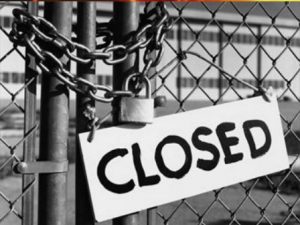 By Fabien Gaussorgues
By Fabien Gaussorgues
Last week, an American buyer shared his frustration about their contract manufacturer in Shenzhen with me. The manufacturer has to delay production for 2 months because the raw material factory will be closed for that duration.
In substance, the buyer is told “you have to wait, it’s not our fault”. He can’t believe this excuse. After all, everything is possible in China, right? If they really look for a solution, they will find one, right?
Foreign buyers tend to question every piece of information from their Chinese suppliers. And for good reason.
Sometimes it is true. The business environment in China is challenging. For example, internet shutdowns and even electricity shutdowns are still common, even in Dongguan. But manufacturers here are so creative in finding excuses for delays that establishing the truth can be extremely difficult.
In this case, we investigated the situation and the reason is the government crackdown on polluting activities. You can read about it in this article.
We have already seen the impact of this new policy over the past few months:
- Plating factories suffered great delays in December last year;
- Packaging materials have become harder to procure over the past 8 months;
- Raw materials like silicone, aluminum, and steel have been very volatile since the beginning of the year (and even more in August).
The government is targeting polluting industries. Rogue operations that didn’t bother with waste treatment or government licences were allowed to operate for a long time, but their time is coming to an end.
The impact of the new regulation can vary a lot, depending on the situation:
- Factory is shut down (and usually the owner is either fined or sent to jail)
- Factory is shut down for a certain period, until they comply with regulations
- Factories work at night to avoid controls and restrictions
Can one predict what will happen next? Not really. The crackdown is evolving and following different phases.
Recently, raw material suppliers in the North of China seem to have been hit harder.
What does it mean for foreign buyers?
If one of your suppliers is hit by government inspections, it means you have polluting factories in your supply chain.
Ones might not care about the impact on society. But it is likely to disrupt your supply chain, so it does matter.
Would it make sense to look for another supplier and ensure your production keeps going, even if your product price increases slightly? That’s a question you should ask yourself.
The fact is, replacement usually comes at a cost. Those polluting factories are often the lowest cost suppliers.
And should you be able to forecast such disruptions? Unfortunately, you can’t really count on your direct supplier for an analysis of the sub-suppliers. You need to push for transparency of your supply chain, as much as possible.
Trading companies and contract manufacturers in China tend to hide their own suppliers. It gives them more power over the buyer. Unfortunately, it also raises the risks for the buyer — think child labor, slavery, unsafe work, and polluting processes. This might lead to damages to your brand.
Is the government crackdown used by suppliers as an excuse?
Do they use it as an excuse for delays? Sometimes maybe, but all the cases we investigated were genuine.
Suppliers are probably suffering from that situation more than you do.
The problem is, they used to cooperate with a certain suppliers for many years and they don’t even consider finding a new one. We have found that most Chinese suppliers are bad at finding and evaluating new sources.
Do they use it as an excuse for price increases? Yes, definitely.
In the worst case, they claim that a 50% increase of the raw material cost leads to a 50% increase of the final product’s price. This is infuriating to their customers.
This is where knowing your product’s cost breakdown will help you limit the increase in price. The product price goes into raw materials cost, processing cost, logistics, managements and of course the factory’s margin. The percentage of raw materials in the total cost can vary a lot.
A few tools foreign buyers might want to implement
- Supply chain control
- Multiple sources for raw materials
- Product cost breakdown

Hello,
For 1 year now, all industry are disturb with brutal application of enforcement of environnement regulation. In my business, i suffer drlays for cartons and chrome treatment.
Recently this month, an friend tells me it’s production line was shutdown because of not raw material for cement.
http://economictimes.indiatimes.com/news/economy/foreign-trade/chinas-crackdown-on-polluting-factories-hits-indias-imports-of-refractory-material/articleshow/59918322.cms
Yes, stock and order placed in advance is a wisdom. I treat all my command with the risk of delay of 1 month is 0%, but more than 50%… to not disturb my supply chain.
We are capable to do this 1 time an year, for chinese new year!
Yes that can be quite a disruption in some supply chains!
I recently had a supplier tell me raw steel increased 35% last month. There was no delay, however the price increased 8% over the quote. They also asked me to order soon so they could plan how much raw material to buy.
Yes, raw materials are going up a lot these days… If the total cost of the full product went up 8%, maybe it is really a fait adjustment. Wait until the price of steel goes down and see if they do an adjustment again!